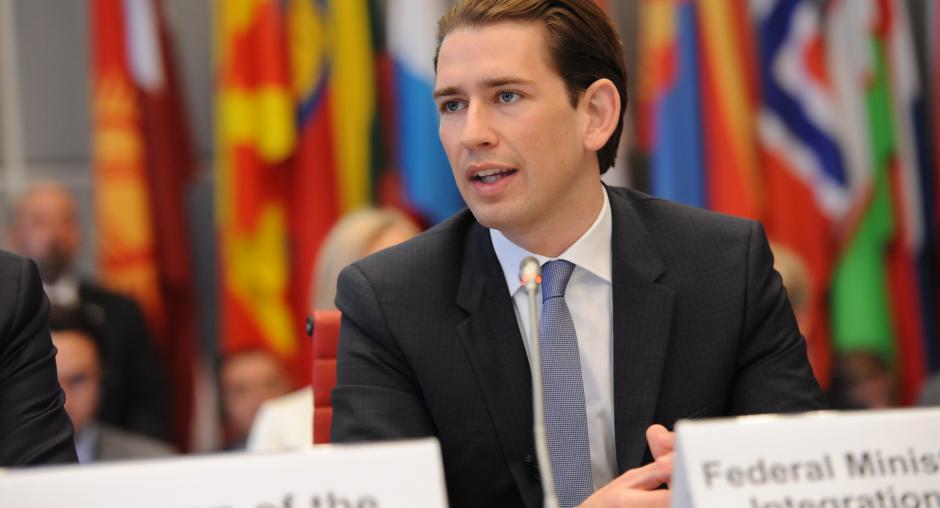In first address to OSCE Permanent Council, incoming Chairperson-in-Office Austria’s Foreign Minister Kurz, stresses need for decisive action and cooperation

VIENNA, 14 July 2016 – In his first address to the OSCE Permanent Council as incoming OSCE Chairperson-in-Office, Austria’s Minister of Foreign Affairs Sebastian Kurz said that the fight against radicalization will be the main priority of Austria’s 2017 OSCE chairmanship.
In his presentation of the Austrian OSCE chairmanship program, Minister Kurz highlighted three major threats to security and stability, that all OSCE participating States and Partners for Co-operation face today: the continuing increase of military conflicts; the growing threat to internal security through radicalization and terrorism; and the continuing loss of trust between states, as well as between citizens, on the one hand, and states institutions and organizations that need to safeguard their freedoms and values, on the other.
“The spread of radicalization and violent extremism is one of the biggest challenges of our times,” emphasized the Minister. “The OSCE will need to use all its available instruments and focus on prevention of radicalization. Regional co-operation and exchange of information, including with Partners for Co-operation, are key in this regard.” Human rights and democracy as well as inclusion of all groups of society including a vibrant civil society are the basis for inner stability. The OSCE should therefore contribute to develop strong institutions and the economic perspectives in the OSCE region.”
“At a time of great changes and increased insecurity, international and regional organisations need to take political responsibility,” said Austria’s Foreign Minister noting that the crisis in and around Ukraine has shattered trust among states and at the same time it has demonstrated the importance of the OSCE and its crisis management expertise. “During our Chairmanship, Austria will build on its role as an honest broker and foster dialogue and co-operation in the OSCE region,” stated Foreign Minister Kurz.
Referring to Austria’s geographical location at the heart of Europe, Kurz said that his country always had good contacts with the West and the East. “This geographical bridging function is an incentive for us to build political bridges as well,” Kurz said.
Announcing his intention to visit the OSCE region throughout the year in order to get a clear first-hand picture of different challenges, Minister Kurz concluded: “We want to be engaged in the OSCE in order to contribute to better security for our societies by helping to defuse current conflicts, combating radicalism and extremism, and working to re-establish trust among OSCE participating States,“ said Kurz. The OSCE has a vital role to play in contributing to conflict resolution and restoring trust and holds an impressive range of tools to that end. The OSCE structures and institutions, its field operations, are important pillars to enhance cooperation among its 57 participating States.”
